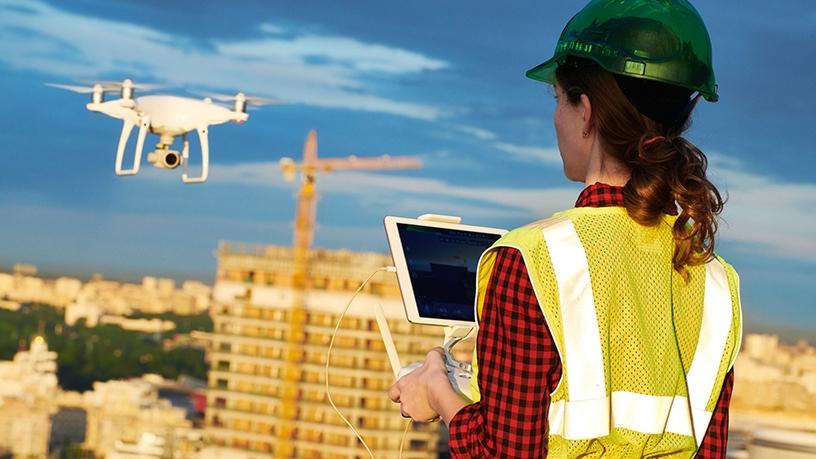
Cape Town-based commercial drone operator and drone pilot training company, UAV Industries is looking to train 10 women as accredited commercial drone pilots, through its Remote Pilot Licence (RPL) course.
The course, valued at R26 500 per student, will help women enter the emerging sector as qualified drone pilots and will enable more women to build a career in the unmanned aviation industry. Following successful completion of the course, the women may be offered an internship at the company, depending on their overall competency.
Under the South African Civil Aviation Authority's (SACAA's) regulatory framework, one needs an RPL to work commercially.
According to the International Civil Aviation Organisation (ICAO), the international air transport sector employs 62.7 million people worldwide and contributes $2.7 trillion to global gross domestic product.
More female pilots wanted
UAV head of training, Ken Venn, says the need to offer free courses was brought on by the consistent low numbers of women considering unmanned aviation as a career.
"We noted a significant discrepancy in the number of male versus female students completing their RPL courses. Since we started the business in 2016, we've done a lot of training and career day expos. What we realised is that, both boys and girls under the age of 14 have no biases when it comes to operating or playing with drones. Unfortunately, as they get older, we notice a huge split, where the number of women who remain interested in the courses dwindle. Having trained over 500 RPL students so far, only 5% have been female."
Venn adds that offering the free training is part of a bigger strategy to create inclusiveness in the aviation industry. "The industry is relatively young and if we start creating a culture [of inclusiveness] now, the trend will continue. The fact that there is such a high ratio of men to women working within the commercial drone industry is not due to any logistical barriers to entry imposed on female job seekers.
"Historically, there is already some societal biases around women in mainstream aviation. Being a licensed pilot is only the first step into the industry. Opportunities such as being an instructor or opening a pilot training business will avail themselves. Through this bursary, we are really hoping to change these perceptions of the drone industry as being a male-oriented arena."
Advancing gender equality
Venn explains that the offer is also in support of the first-ever Global Aviation Gender Summit, which will be held in Cape Town from 8 to 10 August. The summit, which will be hosted by
SACAA, ICAO and UNESCO, aims to advocate and advance gender equality and empowerment of women in the global aviation sector.
"It will mobilise the global air transport community to identify concrete actions to accelerate gender equality in the sector and also establish partnerships to support the coordination and implementation of these actions," says Venn.
There has been a steady growth in demand for commercial drone services, both globally and in South Africa, with global drone spending expected to reach $9 billion in 2018.
The training will start on 6 August with a week of ground school classes, followed by one-to-one practical flying lessons. Interested parties must be 18 years or older and be in possession of a Class 4 Medial Certificate. Closing date for submissions is 31 July 2018. For further details, click here.
Share